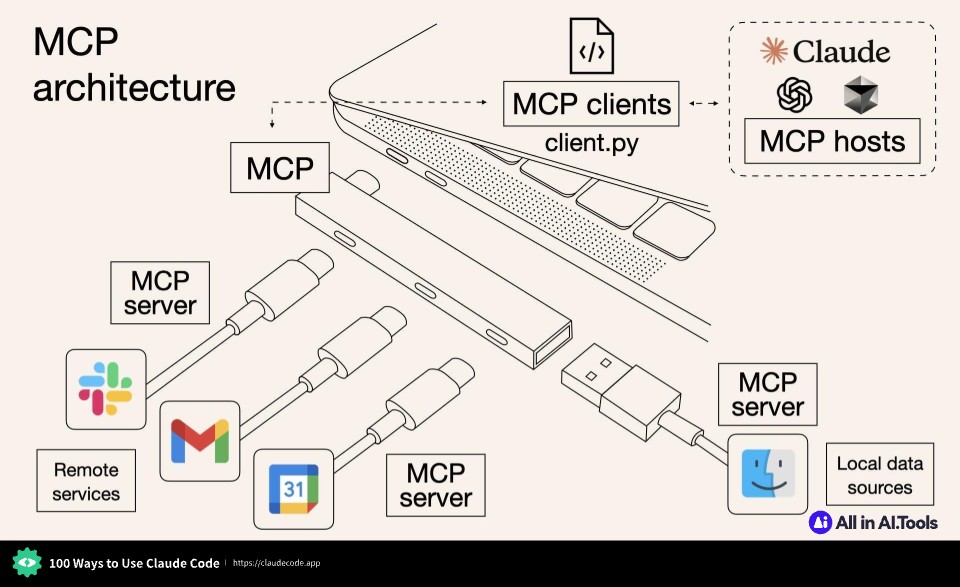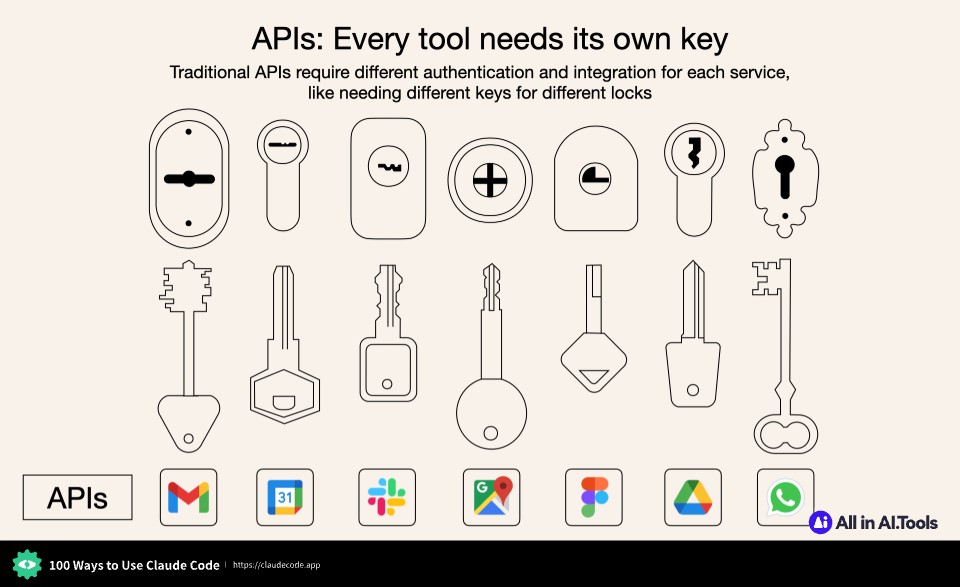Discover and integrate MCP servers to extend Claude's capabilities
MCP Server to expose the GDB debugging capabilities
A Model Context Protocol server for Chess.com's Published Data API. This provides access to Chess.com player data, game records, and other public information through standardized MCP interfaces, allowing AI assistants to search and analyze chess information.
It's like v0 but in your Cursor/WindSurf/Cline. 21st dev Magic MCP server for working with your frontend like Magic
A simple MCP ODBC server using FastAPI, ODBC and SQLAlchemy.
Typescript based Model Context Procotol (MCP) Server for Open Database Connectivity (ODBC)
OmniMCP uses Microsoft OmniParser and Model Context Protocol (MCP) to provide AI models with rich UI context and powerful interaction capabilities.
MCP server for Cursor that leverages Gemini's much larger context window to enhance the capabilities of the AI tools
A Model Context Protocol (MCP) server implementation for GitHub integration
A Model Context Protocol (MCP) server for Apache Dolphinscheduler. This provides access to your Apache Dolphinshcheduler RESTful API V1 instance and the surrounding ecosystem.
A Model Context Protocol (MCP) server that automates generating LinkedIn post drafts from YouTube videos. This server provides high-quality, editable content drafts based on YouTube video transcripts.
Model Context Protocol (MCP) server implementation for ClickUp integration
A command-line tool and MCP server that summarizes code files using Gemini Flash 2.0
A beginner-friendly MCP server template featuring a PostgreSQL connector with clean, easy-to-understand code. Perfect for developers new to Model Context Protocol who want to experiment and create their own AI tool connectors with minimal setup.
A Model Context Protocol (MCP) server that reads and writes MS Excel data
Model Context Protocol (MCP) server for connecting Claude with the Intervals.icu API
Yellhorn offers MCP tools to publish detailed workplans as GitHub issues with entire-codebase reasoning and to review diffs against them
MCP server for building PocketBase apps really quickly - Need a front end quick consider FastPocket
Tools for seamless integration of different systems and services.
Cloud infrastructure and deployment management tools.
AI-powered tools for creative design workflows across 3D and 2D mediums.
AI-powered tools for product development, design review, and performance monitoring.
Tools for monitoring, analytics, and operational efficiency.


Explore Claude Cowork, Anthropic's groundbreaking AI agent built on Claude Code foundations. Discover how it enables file access, document creation, and task automation for everyone—not just developers. Learn how it integrates with MCP servers and extends Claude Code capabilities.
Explore the major [Claude code](https://claudecode.app) 2.1.1 update featuring 109 CLI improvements, automatic hot reload for skills, sub-agent execution, enhanced security, performance optimizations, and smarter prompt behavior. Learn about all the new features and improvements.
Master the art of prompting Claude with Anthropic official guide. Learn 10 proven strategies to 10x your Claude Opus and Sonnet 4.5 performance. Discover how better prompts lead to better results with practical examples and real-world applications.
Deep dive into sophisticated SSH workflows for Claude Code power users. Learn zero-friction authentication, session management, and advanced techniques that transform your vibe coding experience.
MCP (Model Context Protocol) is an open protocol that standardizes how applications provide context to LLMs. Think of MCP like a USB-C port for AI applications, providing a standardized way to connect AI models to different data sources and tools.
MCP Servers are lightweight programs that expose specific capabilities through the standardized Model Context Protocol. They act as bridges between LLMs like Claude and various data sources or services, allowing secure access to files, databases, APIs, and other resources.
MCP Servers follow a client-server architecture where a host application (like Claude Desktop) connects to multiple servers. Each server provides specific functionality through standardized endpoints and protocols, enabling Claude to access data and perform actions through the standardized protocol.
Yes, MCP Servers are designed with security in mind. They run locally with explicit configuration and permissions, require user approval for actions, and include built-in security features to prevent unauthorized access and ensure data privacy.